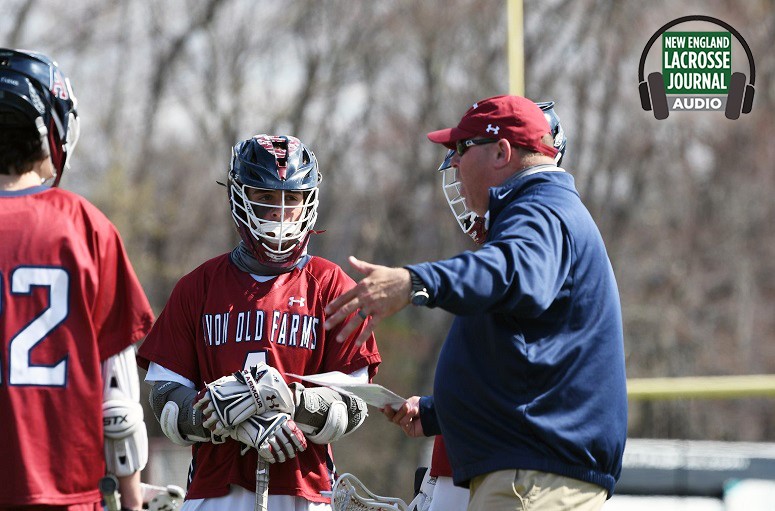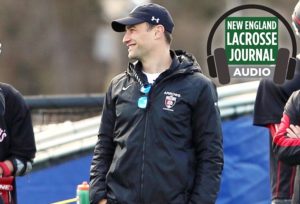
Eric Fekete has seen the recruiting process from a number of different angles.
A Duxbury, Mass., native, he coached at Duxbury High School in the mid-1990s before moving on to the college game, including 18 seasons as the head coach at Quinnipiac University.
Now, he just finished his second year as a history teacher and the head lacrosse coach at Avon Old Farms, which annually sends its best players to some of the top Division 1 programs in the country.
Fekete joined host Jack Piatelli on “New England Lacrosse Journal’s Chasing The Goal” to give insight from a professional life spent on both sides of the recruiting process.



